On 28 November 2024, the Land Transport Authority (LTA) announced the awarding of the Jurong Region Line (JRL) operating contract to a joint venture between SBS Transit Rail and RATP Dev Asia Pacific. The joint venture is named Singapore One Rail (SOR).
RATP Dev Asia Pacific is a subsidiary of French public transport operator RATP Dev. This is the first time that a foreign operator would be involved in Singapore’s rail industry, and the tender awardees have committed to use the experience of RATP Dev to build local capabilities in rail operations and maintenance.
The awarded operating contract is for 9 years, with an option for a 2-year extension. The service fee quoted for 11 years is approximately $750 million, which is about 8% lower than that quoted by the only other bidder, SMRT Trains.
The JRL is Singapore’s seventh MRT line, and is expected to open in phases between 2027 to 2029.
Tender background
In May 2023, LTA called a limited tender to appoint an operator for both the JRL and Cross Island Line (CRL). The tenders were only opened to the existing rail operators in Singapore (i.e. SMRT Trains & SBS Transit Rail), with foreign operators allowed to participate through joint ventures with local rail operators, as minority partners of less than 25% shareholding.
Despite calling tenders to appoint the operators for both lines concurrently, the LTA stated that each bid for each line would be assessed on its own merits, including quality and price. This approach would encourage both bidders to submit more competitive bids by taking into account potential savings in the event both lines are operated by the same operator.
The successful tender will be paid a service fee to operate and maintain the lines for the first licensing period of nine years, with the possibility of a two-year extension.
Tender award
On 28 November 2024, the tender was awarded for the JRL only. LTA decided not to award the CRL contract as it assessed that the tenderers’ proposals did not adequately reflect the uncertainties of operating the line when service commences in six years’ time. The CRL operator would thus be selected at a later date.
The SBS Transit Rail–RATP Dev Asia Pacific Joint Venture, called Singapore One Rail (SOR), was awarded the contract for approximately $750 million, which was about 8% lower than the bid put forth by SMRT Trains.
According to SBST’s press release, SOR has committed in its tender proposal to leveraging advanced technologies to deliver safe, reliable and sustainable train services; for example, condition monitoring technologies, video and data analytics and generative Artificial Intelligence. SOR has also committed to implementing a suite of proven productivity initiatives that are geared towards enhancing operational efficiency.
A flagship SOR Customer Experience Innovation Lab will be established to encourage commuters to co-create innovative technologies and solutions for a better public transport experience. The Lab will allow commuters to be involved in testing and improving new solutions. It will also serve as a platform to build local capabilities and host design workshops and hackathons aimed at generating fresh and creative ideas to tackle public transport challenges.
The award of this tender comes a year after SBS Transit’s parent company, ComfortDelGro, and RATP Dev, jointly won the contract to operate the South sector of Line 15 of the Grand Paris Express in the Greater Paris region, France.
Tenderer Background
Local rail operator SBS Transit Rail has operated the North East Line and Downtown Line in Singapore since their opening in 2003 and 2013 respectively, bringing more than 20 years of operational excellence and in-depth knowledge of Singapore’s fully-automated heavy metro system. Since 2021, SBS Transit claims that Downtown Line is the world’s most reliable metro line, achieving more than 4 million Mean Kilometres Between Failure (MKBF) in 2021 and 2022, and doubling to more than 8 million in 2023 and 2024.
RATP Dev, part of the RATP Group with 120 years of global experience, has a solid track record in delivering automated metro systems in cities such as Paris, Sydney, Doha, and Riyadh, successfully opening several new rail lines over the past decade, including the Line 14 automated metro extension for the Paris 2024 Olympic Games.
Service Fee
Given ridership and fare revenue uncertainties in the initial years of operation for new lines, the Government will bear the fare revenue risk during the first licensing period of the JRL. The awarded operator will be paid a service fee to operate the line while the Government retains all fare revenue. This arrangement is similar to the one currently used for the Thomson–East Coast Line, and differs from existing rail lines operating under the New Rail Financing Framework (NRFF) wherein both LTA and rail operators share in rail revenue risk.
Like the TEL, there is a framework to encourage good performance in key areas such as service reliability, customer satisfaction, and operational and maintenance processes. This is in addition to licensing and regulatory requirements on service and maintenance performance that the operators have to adhere to. The operator will receive an incentive payment for outperformance, and conversely, a service fee deduction if it does not meet expectations.
About the JRL
The JRL will be Singapore’s seventh MRT line, serving both existing and future developments in the western part of Singapore. It will significantly improve the connectivity of the region and support the development of the Jurong area, which is set to be the largest commercial hub outside the Central Business District. Commuters can expect to be connected to key activity nodes in Jurong, such as the Jurong Industrial Estate, Jurong Innovation District, and the Nanyang Technological University (NTU).
A fully elevated line spanning 24km, the JRL will comprise 24 stations and one depot. With three interchange stations bringing more connectivity to the existing rail network, commuters will enjoy more alternative routes of travel. 60,000 more households in Jurong will be within a 10-minute walk from a train station when the line is fully completed. The JRL will open in phases from 2027.
External Links & References:
- Tenders Called to Appoint Operators for Jurong Region Line and Cross Island Line (9 May 2023)
- Jurong Region Line Operations Awarded to Joint Venture Between SBS Transit Rail and RATP Dev Asia Pacific (28 Nov 2024)
- SBS Transit in Partnership with RATP Dev Wins Tender to Operate the Jurong Region Line (28 Nov 2024)
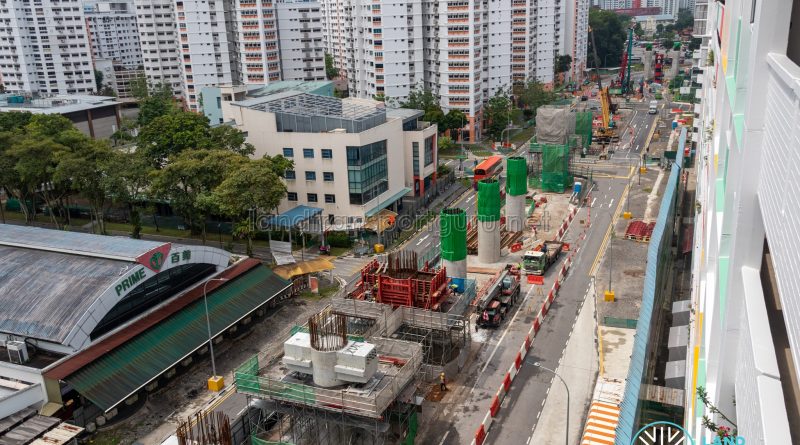
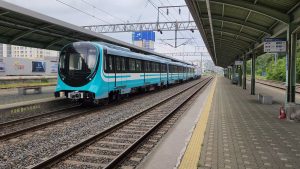
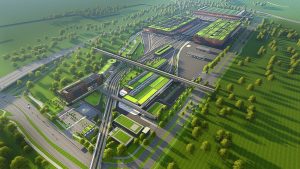

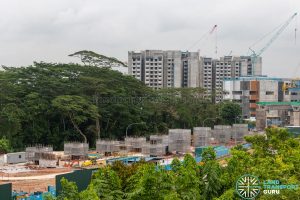
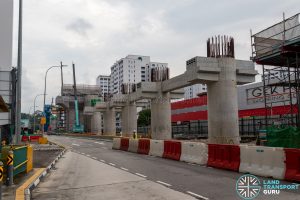
🇫🇷 Vive la france 🇫🇷
Next hoping RATP will take over either GO Ahead or Tower Transit in 2026.
Lucky is SBS and not SMRT
Congrats to SBS Transit, you deserve it, better than the stupid SMRT
Yeah better than the paper general infested SMRT Corp.All their best technicians moves to SBST rails.Hopefully SOR also win the CRL.
Frankly say 750m for 11 years is too little for the joint venture.RATP share is less than 25%.Next Torrens Connect should joint venture with SMRT for the cross island lines.Or better its SBST/RATP again.
750 million for 11 years = 5.68 million per month = 186,656 per day = 7,779.48 per hour.
That’s a lot of money already.
Still say too little.
Taiwan average salary: S$13.94 per hour.
Singapore average salary: S$35.44 per hour.
My salary ($2500/month): S$15.63 per hour.
S$7,779.48 per hour
Based on my salary only,
$7,779.48 per hour can hire 497.727 staff.
Chat GPT estimate that the 24km 24 stations fully automated Jurong Region Line would need around 370–480 staff.
Operations Control Center: ~30–40
Station Staff: ~120–140
Security and Cleaning (outsourced): ~100–140
Depot Staff: ~70–90
Administrative Support: ~50–70
$7,779.48 per hour to pay 370–480 staff.
One staff can get approximately $2,592–$3,363 per month.
Of course, need to buy materials all that. Hire less workers to make up for it.
2.5k to 3.3k is actually still quite okay, even in 2038, 11 years after JRL opens in 2027.
After all, JRL is public infrastructure, not commercial entity. If want earn more, join private sector.
As a whole unit of operations of 11 years…Bear in mind RATP also minor share of the cost.You calculate back and Bukit Merah package is another less profitable contract with SBST lower the fee to just 470m for 5 years…They earn less than 100m per year and don’t forget cross border service deploy many BCs and fuel cost.Do business is not like you work for someone and get paid monthly.